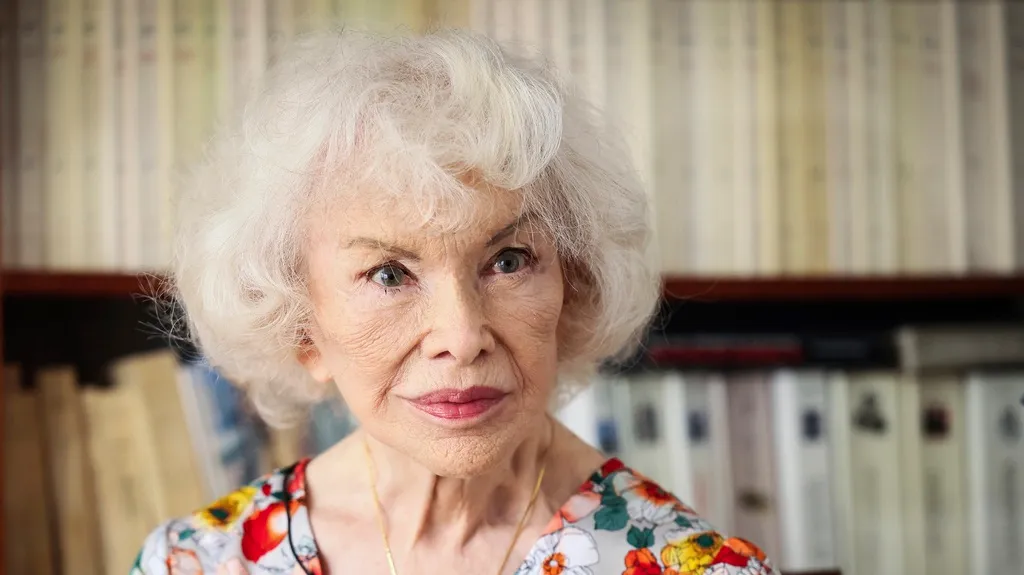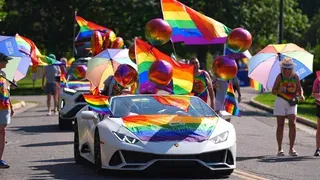March 1, 2012
Haitians Launch Country's First LGBT Rights Organization
Joe Siegel READ TIME: 3 MIN.
Haiti's very first LGBT rights organization launched in the impoverished country's capital late last year with the help of a recent Tufts University graduate.
Nick Stratton, who was active in Boston Pride and on other LGBT issues while at Tufts, helped Haitians open KOURAJ in Port-au-Prince. He told EDGE that he was "highly involved" with the Haitian American community, both on campus and in the city. Stratton already spoke French and began learning Haitian Creole before graduating.
"I wanted a challenge, and no place seemed more challenging or confusing to me than did Haiti," explained Stratton. "Although I was unsure, I finally made the move to Haiti with my partner of nearly two years, Vincent, who gave me the courage and support to live here."
Stratton and his partner did not intend to fight for LGBT rights when they settled in the country. After acquainting themselves with the masisi (LGBT community) and hearing their concerns, however, they realized that something needed to be done.
Stratton recalled an incident at a public beach in Jacmel. An elderly woman and a mother with a young child were among the beachgoers who began screaming at him, Vincent and their openly gay companions.
"Already, we were the only white people on the beach and had attracted a lot of attention; now we were the only masisi, too," recalled Stratton. "Needless to say, I was scared to death. Our friends reassured us and calmly pointed out this was completely 'normal.' Indeed, our Haitian friends did not flinch for even a moment."
KOURAJ, which means "courage" in Haitian Creole, sprung out of this incident.
"We knew from that moment on, that no matter how hard the struggle would be, Haiti is ready for an LGBT rights-based movement, and that Haitian masisi are ready to lead the way," said Stratton.
In order to ensure long-term financial sustainability and operational autonomy, KOURAJ is building a social enterprise to self-finance the organization. This business-an LGBT-friendly restaurant, bar, caf� and cultural center called the "Yanvalou"-will provide the only LGBT-specific space in the country. KOURAJ will also offer jobs, educational materials on LGBT rights and equality, sexual assault prevention services, condoms, information on free antiretroviral clinics for testing and treatment and other HIV/AIDS/STI resources.
Stratton said that many Haitians have expressed curiosity when he and his colleagues discuss their efforts to build an LGBT movement and community center in their country.
"Masisi in Haiti are so used to living in secrecy, in silence, in ridicule, in discrimination that no one typically dares say he or she is masisi. So when you come off as confident or nonchalant about your sexuality, Haitians are genuinely curious and want to talk more about it," he said. "When I say 'we,' I mean the Haitian leaders of KOURAJ also assume their sexualities in public. We 'blan' (white people) have a certain amount of protection and distance when we say we are masisi, so the real courageous individuals are the leaders of the movement."
Organizations serving Haiti's LGBT community are scarce. Three include a psychosocial health organization called SEROvie works with sexual minorities with HIV/AIDS, a health services organization for HIV/AIDS victims called POZ (not officially LGBT) and a lesbian organization FASCDIS with whom KOURAJ works.
The country has a vibrant LGBT culture that includes drag queens, artists, musicians and dancers. Anti-gay attitudes, however, remain all too common.
"Societal rhetoric defines masisi as someone who rapes Haitian boys or who is a pedophile," said Stratton. "Religious rhetoric dictates that masisi are mortal sinners and abominations to society. Violence against masisi is commonly justified because homosexuality is still considered a choice and not a characteristic acquired at birth. These public definitions have cornered masisi into a very degrading situation; unsurprisingly, many members of the LGBT community have emotional and psychological problems."
Stratton explained that KOURAJ's commitment to providing hope and empowerment to Haitian LGBTs is part of a larger worldwide movement.
"The point is we must admit to ourselves that hate is everywhere, and that gay-haters are no exception to Haiti," said Stratton. "A step towards equality in Haiti is a step forward for rights in the U.S., because over a million Haitians live in the U.S., because Haitian history is American history... because LGBT equality and rights is a global struggle."
Log onto Kickstarter.com for more information on KOURAJ and how to support their work.
Joe Siegel has written for a number of other GLBT publications, including In newsweekly and Options.




